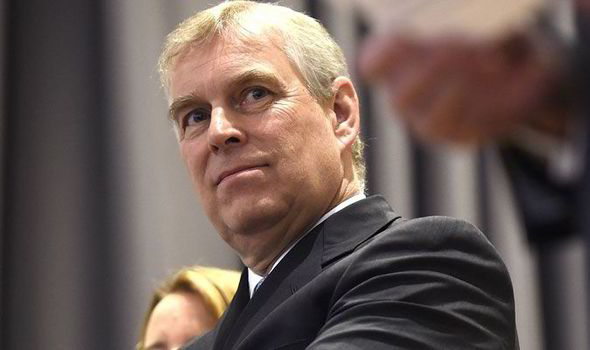 EVERY couple of years a now familiar cycle begins at Buckingham Palace when officials try to rehabilitate Prince Andrew's battered image.
EVERY couple of years a now familiar cycle begins at Buckingham Palace when officials try to rehabilitate Prince Andrew's battered image.
Journalists invited to interview the Duke of York or spend the day following him around on his official duties are told he is really doing rather important work that deserves wider attention.
But the attempts to rehabilitate him appear to end in failure because one scandal or another comes back to haunt the Queen's second son and he refuses to deal with the fundamental issues that have blighted his reputation.
There remain many unanswered questions surrounding the behaviour of Andrew, 54, that some are now asking whether it is time for him to give up official royal duties altogether and disappear into the background.
Andrew has been dogged for years by his ageing playboy lifestyle, a love of the company of glamorous women and shady businessmen who keep him in the style to which he has become accustomed.
Forced to give up his role as the UK Special Representative for International Trade and Investment in 2011 after his friendship with Jeffrey Epstein proved one scandal too much for Government ministers. He continues to travel the world, often at taxpayers' expense. His trips abroad are often shrouded in secrecy, avoiding public and media scrutiny.
They were often constructed to be a mixture of public taxpayer-funded duties and privately-funded business visits or holiday despite a 2004 National Audit Office report into his travel arrangements that said: "In order to avoid confusion, combining private and public engagements in the same trip is actively discouraged."
In 2014 Andrew undertook 67 engagements in 11 countries, mostly in the Middle East, where his royal status is often said by his supporters to carry weight in helping British companies to sell exports to the region's ruling families.
Yet British and foreign diplomats have told a different tale. Sir Ivor Roberts, president of Trinity College, Oxford and former UK ambassador to Italy, Yugoslavia and Ireland, was less than complimentary about a royal visit to Rome: "Prince Andrew managed to offend key people brought to see him," he recalled, "He has that rather unfortunate manner of being brusque to the point of rudeness."
Simon Wilson, Britain's deputy head of mission in Bahrain from 2001 to 2005, complained of Andrew's boorish behaviour and his inability to listen to and stick to a brief. Often the Duke, who was known by British diplomats as His Buffoon Highness, would do exactly the opposite of what was in Britain's best interests, he said.
He recalled how at one meeting with the King of Bahrain in October 2002, Andrew suggested it might be better to lease rather than buy British-made Hawk aircraft.
"We British embassy staff could hardly believe it. Instead of promoting the sale, he was trying to talk them out of it," he recalled in 2010.
His constant socialising with wealthy foreign businessmen who have entertained him on their yachts or at their palatial residences has prompted questions about what was in it for them.
Andrew, for example, has never explained why in 2007 Timur Kulibayev, the billionaire son-in-law ofthe Kazakh president, Nursultan Nazarbayev, paid ?15 million - ?3 million ever the asking price for his Sunninghill home and left it in a dilapidated state.
The prince himself told the Telegraph in 2009: "It's not my business the second the price is paid. If that is the offer, I'm not going to look a gift horse in the mouth and suggest they have overpaid me."
But successive Governments, while losing patience with Andrew, have shied away from any form of parliamentary or formal investigation into many of the scandals.
Government and palace officials appeared, for example, to accept his denial of any knowledge of a cash for access scandal involving his ex-wife Sarah, Duchess of York, in 2010.
She was caught on tape telling an undercover reporter posing as a businessman that he was in on the deal and that he had suggested a ?500,000 introduction fee. "Andrew said to me, 'Tell him ?500,000.',"
Fergie told the News of the World. "He knows that he's had to underwrite me up to now because I've got no money. So if you want to meet him in your business, look after me and he'll look after you... you'll get it back tenfold."
But officials were happy to accept Andrew's insistence that he knew nothing about it. Would a Government minister in a similar position have been treated so lightly?




